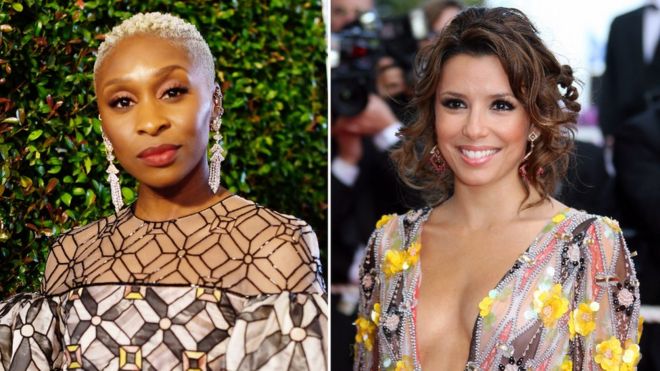Films hoping to compete for the best picture Oscar will have to meet certain criteria over diversity, the Academy of Motion Picture Arts and Sciences says.
The Academy set out four "standards" which it hopes will boost representation and inclusion both in front of and behind the camera.
For the 96th Oscars, in 2025, only films that have met at least two of the standards will qualify for the award.
The Oscars have been criticised for their lack of diversity.
The failure to nominate black or minority actors in 2016 led to a furious backlash, with film stars boycotting the ceremony and the growth of the #OscarsSoWhite movement.
It led to a promise from the Academy to double its female and Bame members by 2020.
The Academy recently invited 819 new members to vote for this year's Oscars, of whom 45% are women and 36% are non-white, and says it has now doubled the number of women members and tripled the number of people from under-represented ethnic and racial communities.
'Catalyst for long-lasting, essential change'
In its latest announcement, the Academy said it was introducing eligibility requirements for the best picture award "to encourage equitable representation on and off screen in order to better reflect the diversity of the movie-going audience".
It lists in detail the underrepresented groups - which include women, racial and ethnic groups, LGBTQ+ and people with disabilities.
It lays out the following areas where such groups need to be involved:
- On-screen acting and storylines, "including at least one of the lead actors or significant supporting actors is from an underrepresented racial or ethnic group"
- Creative leadership positions, departmental heads and crew composition
- Paid apprenticeships, internships and training
- Audience development, from publicity and marketing to distribution
These detailed requirements will only apply to films made in 2024 for the awards ceremony in 2025, and beyond. Until then, films from 2021 will be required to submit an Academy Inclusion Standards form.
"The aperture must widen to reflect our diverse global population in both the creation of motion pictures and in the audiences who connect with them," Academy President David Rubin and CEO Dawn Hudson said in a joint statement.
"The Academy is committed to playing a vital role in helping make this a reality. We believe these inclusion standards will be a catalyst for long-lasting, essential change in our industry."
Latest Stories
-
Painter and sculptor B. Acheampong turning his passion for art into profitable venture
9 minutes -
Presidential lodge, RM residency in Ashanti region left to rot away
24 minutes -
Herty Corgie highlights the essence of gratefulness in ‘My Gratitude’
2 hours -
ANNOUNCEMENT: Joy FM temporarily goes off air January 11
3 hours -
Yango honored with two titles at the Technovation Africa Awards 2024
3 hours -
Aowin Traditional Council declares war on illegal mining with spiritual intervention
3 hours -
Leadership must ensure equity for all citizens, regardless of faith – Asiedu Nketiah
3 hours -
Prof. Alex Manu appointed Executive Director at Centre for Social Justice
3 hours -
Imminent changes within some key security agencies, state institutions, and its implications
3 hours -
There are more women than men, but there’s a man for every woman – Rev. Nana Yaa
4 hours -
Nii Kwei releases ‘The Praise Medley’, a celebration of God’s goodness
4 hours -
Mistakes in team composition can be costly, pray for us – Fifi Kwetey appeals to Ghanaians
4 hours -
Mahama forms 5-member Hajj task force to cut pilgrimage costs
4 hours -
Fuel shortage hits Sissala East and West Districts
4 hours -
President Mahama orders immediate probe into 2020 and 2024 election fatalities
4 hours

